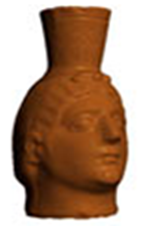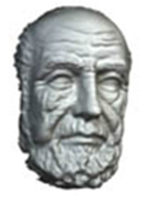|
When Museumgouda, a museum in the Netherlands, evaluated technology companies for a project to make interactive 3D images of artifacts available to museum visitors, Intricad was one of the smallest teams they approached. Intricad was going against much bigger and well-known competitors, but because they developed their scanning solution with Delphi, they were able to get their visual prototype to the customer faster, showing the museum exactly what they were thinking, and moving smoothly from prototype to production without wasting any effort. |
 |
"Using Delphi, we were able to modify our technology and provide a prototype solution amazingly fast, in less than seven days which helped us beat our competitors," B.J. Rao, Intricad Digitizer and one of the engineers on the project, says. Intricad was able to meet all the museum's requirements and win the job. Delphi was then used in all aspects of the software development for the museum's assignment from video processing to 3D graphics and the USB device control interface.
|
Intricad had and still has only two engineers working on the 3D scanning technologies, neither of whom is a programmer. "We have broad engineering backgrounds in hardware and software development,"says B.J. Rao. The engineers chose to program their software in Delphi because they found it intuitive and very well designed. Prior to making the decision to use Delphi, Intricad had considered Microsoft Visual Studio. However, Visual Studio seemed to focus more on the writing and administration of code rather than building and testing algorithms and user interfaces. "There were also the endless compatibility issues and dialogs," Rao says, which Delphi eliminates with automatic updates and flexible connectivity. |
 |
The Intricad R&D activities are divided in 20% hardware and 80% software development. The software development aspect of the program contains a lot of prototyping of new algorithms that need to be performance evaluated. 3D scanning involves video processing, handling very large chunks of data, 3D graphics and device control interfacing. All these must work together seamlessly. "We found ourselves using Delphi more and more. It made things clear and easy. With Delphi we could work with minimal overhead and dig down deep, if needed." |
What impressed the engineers at Intricad and was another factor in influencing their decision to go with Delphi, was its loyal following. "There is a healthy 3rd party component industry and there is a lot of sample code available. People also seemed very inclined to offer information and assistance," Rao says.
Intricad is now being approached more and more by companies and investors to create customized 3D scan solutions for their needs. "As a start up, time and money are critical to achieving success. We need to work harder and do more than others. With Delphi we know what is possible. With fast prototyping and built-in components we can get the job done very quickly," Rao says.
